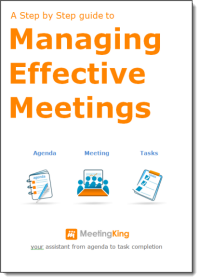90% of the data in the world was created in the last two years. What this means to businesses, is that when you need to reach decisions (for example, how to re-design the Facebook Timeline), you have so much information to sort through, that many people have one of the following reactions:
Procrastination
Putting things off to a later date is a very easy way to deal with a problem. This can be disguised as ‘collecting more information’, ‘setting up a committee’, or ‘we will talk about this next meeting’, but in essence it boils down to the same thing. The company doesn’t really know which way it should turn, and the abundance of information is confusing. Instead of deciding on a specific course, things are put off until, usually, the decision is forced on the company.
Going with the default
Next time you install software on your computer, pay attention to what you do. You probably click ‘Next’, ‘Next’, ‘Finish’. You don’t bother to change the installation directory, or really read the entire blurb that they give you during the installation. You go with the default decision.
The same thing goes with company decisions that need to be based on data. When there is so much data coming in from so many different points, it gets very hard to understand which data is important and which isn’t – so you tend to go with the default. It might be doing the same summer sale you’ve done for the past five years, even when it’s proven to be ineffective, it may be that you decide to go with an iOS application even though the market numbers have shifted in favour of Android, because you all have iPhones, so everyone must have them.
Choosing the default decision is easy, and isn’t really a decision at all.
Using your thumb
The “Rule of thumb” expression has been around for a long time and deciding this way means guessing, based on nothing more than a hunch (see Wikipedia). You look at the sheer amount of data, and decide that more site visits is a good thing (even though conversions might be down). The rule of thumb states that Google Adwords are the most effective form of advertising? We’ll go with that, even though the numbers may show differently.
Using your thumb is another way of avoiding the real decision, which can only be made when you sit down and crunch the numbers.
How can meetings help?
Analyzing data and making a decision alone can be overwhelming. Setting up a meeting may help. Define a clear goal and be prepared – this will help you (and your team) bring the right numbers and data to the table, so that you can make a real, informed decision, and not one based on gut feelings, guesses, or because you haven’t got any other choice.
And real, informed decisions are the best kind.


